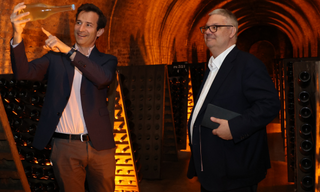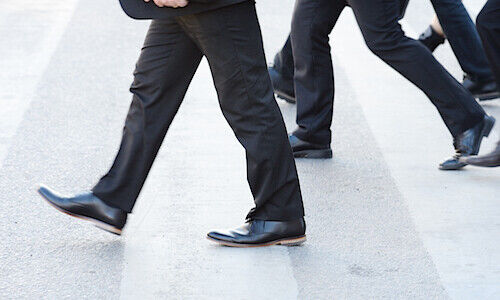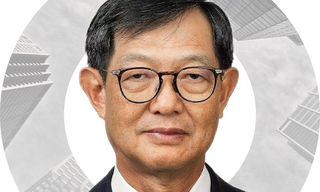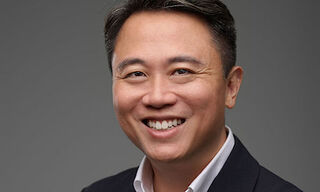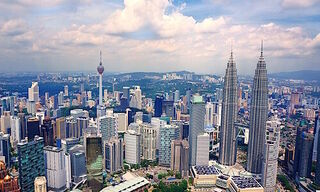Both the auto industry and public transport are failing us when it comes to the future. Most simply want to leave everything as it is, says Andreas Herrmann in a contribution for finews.first.
This article has been published on finews.first, a forum for authors specializing in economic and financial topics.
The car industry is facing the deepest, most incisive transformation in its 130-year history. Combustible engines powered by fossil fuels are being replaced by electric motors and hydrogen fuel cells. A near future of self-driving vehicles needs sensors, algorithms, software – the full internet. What this does is to put everyone back to square one.
Technological barriers are falling rapidly as hundreds of tech companies storm the market. Then there is China, which has incorporated the manufacturing of autonomous cars into government development plans in the belief they will be a key factor in helping it to become one of the leading industrialized nations in the world.
«Paris is creating the 15-minute city»
In cities, people want a different kind of mobility. They want something more multimodal, environmental, and efficient, something that is not always based on bigger and heavier vehicles. The fight for limited space has started and micro-mobility is taking its share.
In London, property developers are being required to stop factoring in parking lots for cars. Paris is creating the 15-minute city and Barcelona is creating so-called Superblocks. These are all measures that build cities around people and not cars, at least not anymore.
«Private-public partnerships are desperately needed to make it all happen»
Everything is happening at once. But it all needs a master plan, a compass, in order to put everything on the right track. There is too much at stake. Good jobs, high pay. The transport industry is the backbone of the Swiss and German economies. But what would the key facets of any such plan or vision be?
1. Tech is the new center of the mobility industry and classic automakers are following in tow. Silicon Valley, Israel's Mobility Valley, and new centers in China in Hangzhou and Shanghai are examples of that.
Companies are moving there to develop steering systems and work with software and algorithms as a way of building new mobility clusters. Public cum private partnerships are needed to make it all happen and build all the requisite capabilities in the centers of research.
2. Public and private transport needs closer links. Driverless cars need to be weaved into local and regional train networks, as well as subways, buses, and other forms of public transport.
«All traffic will have to be fully hooked up to fast, universal data networks»
Soon, hopefully, we will be seeing intelligent traffic systems. That means street crossings without traffic lights. Fixed, single-direction lanes will become a thing of the past. All traffic will have to be fully hooked up to fast, universal data networks. Parking lots will be equipped with sensors that signal if they are empty or not, cutting inner-city traffic by up to 30 percent.
Much of this can be done right now! But it isn't. The Swiss Federal Railways (SBB) has stopped practically all future projects instead of being part of the current wave of progress. Cities and towns are looking at projects on an ad hoc basis here and there. They try something and then stop.
3. Testing zones need to be created giving car manufacturers, suppliers, and tech areas so that they can evaluate and assess self-driving, electrically powered vehicles. China, South Korea, and Singapore are excellent examples showing how important it is. It provides know-how and creates jobs locally.
«Most would like to just leave everything as it is»
The shift from combustible engines to electric motors will cost more than 100,000 jobs in Germany alone. The batteries will be produced in Asia and the data and information technology will come from the US or China.
What do we need to do? Politicians, the automobile industry, and a large number of public transport institutions simply have no desire to see this future come to pass. Most would like to just leave everything as it is.
Past success has bred complacency – even though now it is more than critically important to tackle the future head-on.
Andreas Herrmann is a Professor for Business Administration, leading the Institute of Mobility with Torsten Tomczak and Wolfgang Jenewein at the University of St. Gallen (IMO-HSG). He is also Visiting Professor at the London School of Economics (LSE Cities) and the Stockholm School of Economics. Beyond that, he is responsible for the Executive Education Program related to Smart Mobility Management and the Academic Director at the HSG Summer School for empirical research methods. He has published over 15 books on autonomous vehicles and has published more than 250 scientific studies on the subject in leading publications. He heads cooperation projects with companies such as Audi, Porsche, Roche, and Sonova. He received a doctorate from the Otto Beisheim School of Management (WHU) and qualified as a lecturer at Mannheim University.
Previous contributions: Rudi Bogni, Peter Kurer, Rolf Banz, Dieter Ruloff, Werner Vogt, Walter Wittmann, Alfred Mettler, Robert Holzach, Craig Murray, David Zollinger, Arthur Bolliger, Beat Kappeler, Chris Rowe, Stefan Gerlach, Marc Lussy, Nuno Fernandes, Richard Egger, Maurice Pedergnana, Marco Bargel, Steve Hanke, Urs Schoettli, Ursula Finsterwald, Stefan Kreuzkamp, Oliver Bussmann, Michael Benz, Albert Steck, Martin Dahinden, Thomas Fedier, Alfred Mettler, Brigitte Strebel, Mirjam Staub-Bisang, Nicolas Roth, Thorsten Polleit, Kim Iskyan, Stephen Dover, Denise Kenyon-Rouvinez, Christian Dreyer, Kinan Khadam-Al-Jame, Robert Hemmi, Anton Affentranger, Yves Mirabaud, Katharina Bart, Frédéric Papp, Hans-Martin Kraus, Gerard Guerdat, Mario Bassi, Stephen Thariyan, Dan Steinbock, Rino Borini, Bert Flossbach, Michael Hasenstab, Guido Schilling, Werner E. Rutsch, Dorte Bech Vizard, Adriano B. Lucatelli, Katharina Bart, Maya Bhandari, Jean Tirole, Hans Jakob Roth, Marco Martinelli, Thomas Sutter, Tom King, Werner Peyer, Thomas Kupfer, Peter Kurer, Arturo Bris, Frederic Papp, James Syme, Dennis Larsen, Bernd Kramer, Armin Jans, Nicolas Roth, Hans Ulrich Jost, Patrick Hunger, Fabrizio Quirighetti, Claire Shaw, Peter Fanconi, Alex Wolf, Dan Steinbock, Patrick Scheurle, Sandro Occhilupo, Will Ballard, Nicholas Yeo, Claude-Alain Margelisch, Jean-François Hirschel, Jens Pongratz, Samuel Gerber, Philipp Weckherlin, Anne Richards, Antoni Trenchev, Benoit Barbereau, Pascal R. Bersier, Shaul Lifshitz, Klaus Breiner, Ana Botín, Martin Gilbert, Jesper Koll, Ingo Rauser, Carlo Capaul, Markus Winkler, Konrad Hummler, Thomas Steinemann, Christina Boeck, Guillaume Compeyron, Miro Zivkovic, Alexander F. Wagner, Eric Heymann, Christoph Sax, Felix Brem, Jochen Moebert, Jacques-Aurélien Marcireau, Ursula Finsterwald, Michel Longhini, Stefan Blum, Zsolt Kohalmi, Karin M. Klossek, Nicolas Ramelet, Søren Bjønness, Gilles Prince, Salman Ahmed, Peter van der Welle, Ken Orchard, Christian Gast, Jeffrey Bohn, Juergen Braunstein, Jeff Voegeli, Fiona Frick, Stefan Schneider, Matthias Hunn, Andreas Vetsch, Fabiana Fedeli, Marionna Wegenstein, Kim Fournais, Carole Millet, Swetha Ramachandran, Thomas Stucki, Neil Shearing, Tom Naratil, Oliver Berger, Robert Sharps, Tobias Mueller, Florian Wicki, Jean Keller, Niels Lan Doky, Karin M. Klossek, Johnny El Hachem, Judith Basad, Katharina Bart, Thorsten Polleit, Bernardo Brunschwiler, Peter Schmid, Karam Hinduja, Zsolt Kohalmi, Raphaël Surber, Santosh Brivio, Mark Urquhart, Olivier Kessler, Bruno Capone, Peter Hody, Andrew Isbester, Florin Baeriswyl, and Michael Bornhaeusser, Agnieszka Walorska, Thomas Mueller, Ebrahim Attarzadeh, Marcel Hostettler, Hui Zhang, Michael Bornhaeusser, Reto Jauch, Angela Agostini, Guy de Blonay, Tatjana Greil Castro, Jean-Baptiste Berthon, Marc Saint John Webb, Dietrich Goenemeyer, Mobeen Tahir, Didier Saint-Georges, Serge Tabachnik, Vega Ibanez, David Folkerts-Landau, Andreas Ita, Teodoro Cocca, Michael Welti, Mihkel Vitsur, Fabrizio Pagani, Roman Balzan, Todd Saligman, Christian Kaelin, Stuart Dunbar, Carina Schaurte, Birte Orth-Freese, Gun Woo, Lamara von Albertini, Philip Adler, Ramon Vogt, Andrea Hoffmann, Niccolò Garzelli, Darren Williams, Benjamin Böhner, Mike Judith, Jared Cook, Henk Grootveld, Roman Gaus, Nicolas Faller, Anna Stünzi, Thomas Höhne-Sparborth, Fabrizio Pagani, Ralph Ebert, Guy de Blonay, Jan Boudewijns, Beat Wittmann, Sean Hagerty, Alina Donets, Sébastien Galy, Roman von Ah, Fernando Fernández, Georg von Wyss, Stéphane Monier, Stefan Bannwart, Andreas Britt, Frédéric Leroux, Nick Platjouw, Rolando Grandi, Philipp Kaupke, Gérard Piasko, Brad Slingerlend, Dieter Wermuth, Grégoire Bordier, Thomas Signer, Brigitte Kaps, Gianluca Gerosa, Lars Jaeger, Christine Houston, Manuel Romera Robles, Fabian Käslin, Claudia Kraaz, Marco Huwiler, Lukas Zihlmann, Nadège Lesueur-Pène, Sherif Mamdouh, Harald Preissler, Claude Baumann, Taimur Hyat and Philipp Cottier.












